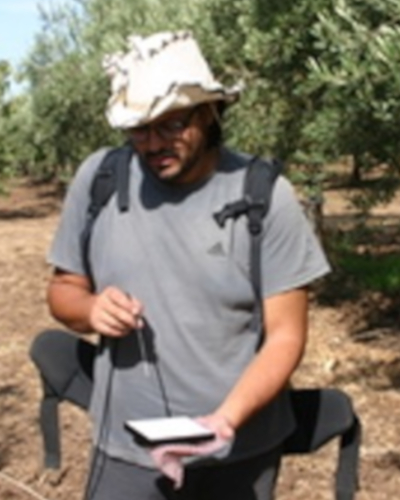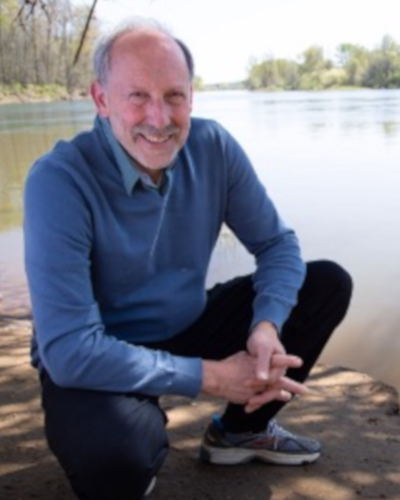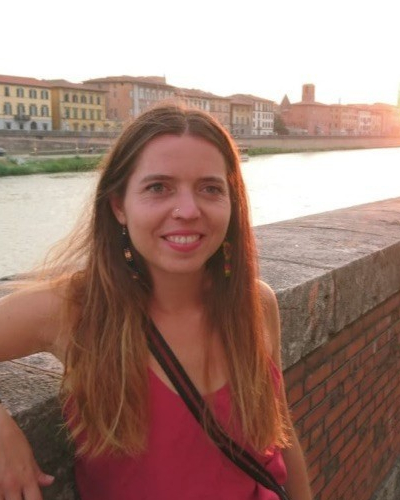SPECIAL SESSION #14
Advances in Agro-Hydrological Sensing and Modelling for Precision Irrigation
ORGANIZED BY
Giovanni Rallo
University of Pisa, Department of Agriculture, Food and Environment (DAFE), Italy
John S. Selker
Dept of Biological & Ecological Engineering. Oregon State University, US
Àngela Puig-Sirera
University of Pisa, Department of Agriculture, Food and Environment (DAFE), Italy
Juan Miguel Ramírez-Cuesta
Department of Agriculture, Food and Environment, University of Catania, Italy
ABSTRACT
Acquiring awareness about the crop agronomic/ecophysiological response to drought/waterlogging across different spatial scales of cropping systems is crucial to face the challenges proposed by climate change, making precision irrigation the strategy to make the farm more resilient and sustainable.
Recent advances in optoelectronics, mechatronics, communications, and information technologies allow the implementation of low-cost, easy operating, and virtual free maintenance of data acquisition systems to be used in soil-crop water status monitoring and in smart irrigation systems. Agro-hydrological models have been recognized as an economic and simple tool to quantify crop water requirements in the decision-making processes, for both farms and basin scales. They can simulate the mass and/or energy exchange processes in the soil-plant-atmosphere continuum under different spatial and temporal scales. These models are joined with new technologies such as sensors and remote sensing promising techniques that have accelerated spatial data collection substantially. Remote sensing and wireless sensor networks can cover scales from a single leaf to complete irrigation systems and can create data sets for large numbers of soil families and farming conditions.
This Special session aims to attract studies, research, and technology transfer activity specialized in developments and/or applications of agro-hydrological sensors and models for precision irrigation.
Special attention is put on emerging technologies and methods for crop water status monitoring, considering the spatial scale's effect for the acquisition of suitable and representative information.
TOPICS
Topics include, but are not limited to:
- Feedback control irrigation scheduling with soil- and/or plant-based sensors.
- Feedforwards control irrigation scheduling with simplified and or numerical models.
- Micrometeorological monitoring of the ET fluxes.
- Procedure for portioning of the ET fluxes.
- Active control of the water distribution plant.
- Calibration and validation of sensors and models.
- Opportunistic approach for model parametrization.
- Upscale and downscale procedure for model's forcing and/or parameters.
KEYWORDS
Precision irrigation, soil moisture; crop water status, sensors, agrhydrological models, flash-drought, sensor and model design, spatial scale, field-instrumentation, field experiments.
ABOUT THE ORGANIZERS
Giovanni Rallo is an associate professor at the DAFE of the University of Pisa. He teaches Agricultural Hydraulics and Hydrology, Water Resource Monitoring and Management in the Agricultural sector, and the laboratory of Sensors and Models for Agro-Hydrological Monitoring. He is responsible for the AgroHydrological Sensing and Modeling Laboratory (AgrHySMo Lab. www.agrhysmoçagr.unipi.it), where he carries out hands-on learning, and research activities over feedback (sensors) and/or feedforward (agro-hydrological and/or spectral models) control irrigation scheduling.
He is the inventor of an expert system for measuring crop evapotranspiration fluxes (international publication number: WO 2019/244057 A1).
In the last 15 years, he has studied the mathematical stress functions and their empirical formulation of woody perennial and vegetable crops under combined abiotic stresses such as drought and salinity. However, research activities aim to define and transfer new technologies and strategies for optimizing water resource use in complex cropping systems.
John Selker is an OSU Distinguished Professor of Biological and Ecological Engineering (College of Agricultural Sciences, 31 years) and co-Director of both The Center for Transformative Environmental Monitoring Programs (CTEMPs.org) and the Trans-African Hydro-Meteorological Observatory (TAHMO.org) and PI of the Openly Published Environmental Sensing Laboratory (currently employing 40 undergraduates - Open-Sensing.org). Selker has worked in more than 20 countries across five continents. Focus areas include environmental instrumentation, groundwater processes, and ecohydrology. Selker has published over 230 peer-reviewed articles, is the pr esident of the AGU Hydrology Section (7,000 members) and has a raft of other things only academics worry about. He loves making things like wooden bowls.
Àngela Puig-Sirera is an agricultural hydrology researcher at the University of Pisa in the AgrHySMo lab. She obtained a PhD in Agriculture, Food and Environment in 2021 from the University of Pisa (Italy), with the thesis entitled Feed-forward and feed-back control irrigation scheduling to improve the supplemental irrigation efficiency in woody perennial crops. The PhD thesis was awarded the best Doctoral Thesis in Agrometeorology (2022) by the Italian Academy in Agrometeorology (AIA). During her postdoctoral fellowship in the Italian National Research Council (CNR), Puig-Sirera applied complex agro-hydrological modelling for assessing soil ecosystem services at different application scales.
Her research interests include mass and surface energy balance models coupled with GIS and remote sensing techniques to identify crop water stress and develop sustainable irrigation protocols.
Dr Juan Miguel Ramírez-Cuesta (PhD) has a decade (2012-22) of research and teaching experience in Agricultural Sciences. Dr Ramírez-Cuesta holds the Post-Doc researcher position at the Centro de Investigaciones sobre Desertificación (CIDE-CSIC) in Valencia, Spain.
In 2018, he received his International PhD in "Agricultural, Food, Forestry and Sustainable Rural Development Engineering" from Universidad de Córdoba and Universidad de Sevilla (Spain).
His main research line focuses on intelligent and precision agriculture to study and evaluate agroforestry systems and the rationalization and optimization of resources in agriculture. Specifically, Dr Ramírez-Cuesta approaches this research topic using IT, sensors, precision management of agricultural systems, and GIS-based modelling. This methodological approach includes techniques based on data acquired from multispectral, hyperspectral, radar and thermal sensors usually mounted on satellites, aircraft, drones, and proximity facilities.

















